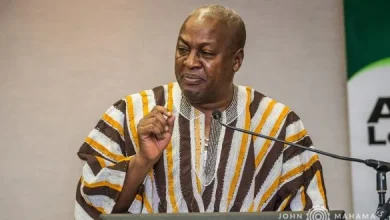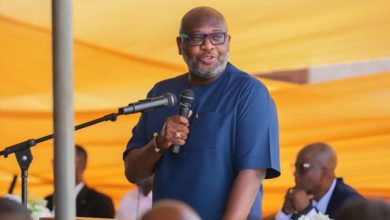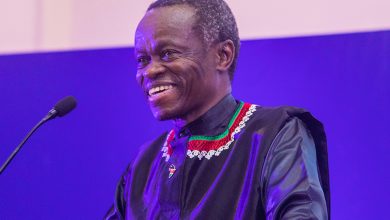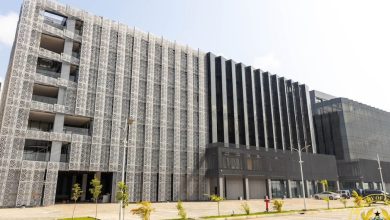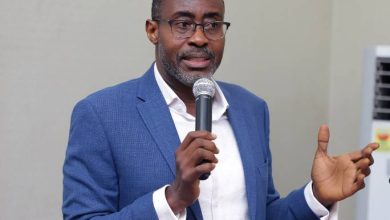First-ever tax appeals board constituted
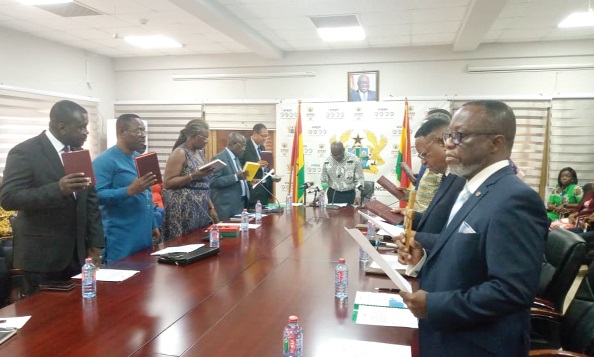
The country’s first-ever Independent Tax Appeals Board has been inaugurated, with a call on the members to ensure speedy adjudication, accuracy and fairness in tax dispute resolution and transform the country’s domestic revenue mobilisation efforts.
The 11-member board is chaired by Justice Lawrence Mensah, a retired Court of Appeal Judge, with members including the President of the Chartered Institute of Taxation, Nii Ayi Aryeetey; a retired Deputy Commissioner in charge of Special Duties at the Ghana Revenue Authority (GRA), Customs Division, Peter Kwame Abebrese; a retired Justice of the High Court, Justice Kwabena Asumanadu, and the Managing Partner, Tax and Legal Affairs at advisory firm, WTS Nobisfields, Theophilus Tawiah.
The rest are a retired Chartered Accountant, Emmanuel Obeng Asiedu; the Administrator of the Diaspora Affairs Department at the Office of the President, Fauziah Ibrahim, a lawyer and former Director of the Legal Directorate of the Ministry of Finance, Mangowa Ghanney; a retired Assistant Commissioner and Head of the Transport Unit at the GRA, Samuel Narh Ojangmah; the Managing Partner of ikern Associates Limited and ikern Chartered Accountancy, Isaac Nyame, and a Senior Manager for Banking Operations of Bond Savings and Loans Company PLC, Catherine Quaidoo.
Until its inauguration, the tax dispute resolution regime required a taxpayer appealing to the GRA Commissioner-General on tax matters and going to the court if dissatisfied with the Commissioner-General’s decision.
That caused litigation of tax disputes dragging on indefinitely, locking up potential government revenue, generating costs for businesses and frustrating both the revenue authority and taxpayers, while the authority was also put in a situation where it had to litigate even on minor issues.
Benefits
After leading the members of the board to swear the oath of office, the Minister of Finance, Ken Ofori-Atta, said the appeals board provided an intermediate avenue for the resolution of a tax dispute as taxpayers and the revenue authority could explore the option before deciding to litigate in the law court.
The establishment of the board, he said, was part of the government’s initiatives to transform revenue administration and enhance revenue mobilisation.
Mr Ofori-Atta explained that despite revenue mobilisation efforts, Ghana’s tax as a ratio of the Gross Domestic Product (GDP) of 13 per cent was one of the lowest in West Africa as the country’s peers were doing an average of 18 per cent.
He said the country’s annual corporate tax gap alone was estimated to be between nine per cent and 12 per cent of GDP.
“It gets worse when you look at the gap on import taxes and Value Added Tax (VAT). This must, as a matter of urgency, be addressed,” Mr Ofori-Atta said.
The minister said Ghana’s inability to mobilise sufficient tax revenue had contributed significantly to the current economic situation the country faced.
Alternate dispute mechanisms
Mr Ofori-Atta said tax disputes could lead to delays in revenue mobilisation, especially if they had to compete with the dispensation of justice in other segments of society.
Alternate Dispute Resolution (ADR) mechanisms, the Finance Minister said, were accepted as a speedy and more cost-effective approach to resolving disputes.
He said an ADR mechanism would instill confidence in investors and reduce the time spent on litigation for both taxpayers and the revenue administration.
Mr Ofori-Atta, therefore, urged the members of the board to develop a strong tax dispute resolution system, capable of supporting the country’s revenue mobilisation drive.
“Provide a fair and independent forum for dispute resolution between taxpayers and the GRA. Make decisions based on the evidence presented and in accordance with the law, and encourage compliance with tax laws by providing clarity on the interpretation of tax legislations,” he charged the board.
First-ever tax appeals board constituted










